Every true 4WD enthusiast should know the basics of minimizing impact in the great outdoors. All COORJC Members are expected to follow these TREAD LIGHTLY ! principles at all times.
RULES FOR RESPONSIBLE FOUR WHEELING
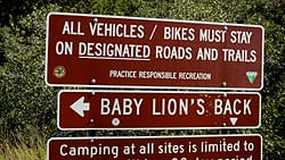
Travel responsibly on designated roads, trails or areas.
Travel only in areas open to four-wheel drive vehicles.
For your safety, travel straight up or down hills.
Drive over, not around obstacles to avoid widening the trail.
Straddle ruts, gullies and washouts even if they are wider than your vehicle.
Cross streams only at designated fording points, where the road crosses the stream.
When possible, avoid mud.
In soft terrain, go easy on the gas to avoid wheel spin, which can cause rutting.
Wheel Off Road Responsibly.
Minimize your impact by traveling only in areas open to four-wheel drive vehicles.
Don’t turn around on narrow roads, steep terrain or unstable ground. Back up until you find a safe place to turn around.
Stop frequently and scout ahead on foot.
To help with traction, balance your load and lower tire pressure to where you see a bulge (typically not less than 20 pounds).
Know where the differential or the lowest point on your vehicle is. This will help in negotiating terrain and prevent vehicle damage resulting in oil and fluid spills on the trail.
Maintain a reasonable distance between vehicles.
Comply with all signs and respect barriers.
Travel with a group of two or more vehicles. Driving solo can leave you vulnerable if you have an accident or breakdown.
Designate meeting areas in case of separation.
Choose the appropriate winch for your vehicle size.
Attach towing cable, tree strap, or chain as low as possible to the object being winched. Let the winch do the work; never drive the winch. When winching always inspect your equipment, use the right winch for the situation, find a good secure anchor and never winch with less than five wraps of wire rope around the drum. When using a tree as an anchor, use a wide tree strap to avoid damaging the trunk of the tree.
Travel only in areas open to four-wheel drive vehicles.
For your safety, travel straight up or down hills.
Drive over, not around obstacles to avoid widening the trail.
Straddle ruts, gullies and washouts even if they are wider than your vehicle.
Cross streams only at designated fording points, where the road crosses the stream.
When possible, avoid mud.
In soft terrain, go easy on the gas to avoid wheel spin, which can cause rutting.
Wheel Off Road Responsibly.
Minimize your impact by traveling only in areas open to four-wheel drive vehicles.
Don’t turn around on narrow roads, steep terrain or unstable ground. Back up until you find a safe place to turn around.
Stop frequently and scout ahead on foot.
To help with traction, balance your load and lower tire pressure to where you see a bulge (typically not less than 20 pounds).
Know where the differential or the lowest point on your vehicle is. This will help in negotiating terrain and prevent vehicle damage resulting in oil and fluid spills on the trail.
Maintain a reasonable distance between vehicles.
Comply with all signs and respect barriers.
Travel with a group of two or more vehicles. Driving solo can leave you vulnerable if you have an accident or breakdown.
Designate meeting areas in case of separation.
Choose the appropriate winch for your vehicle size.
Attach towing cable, tree strap, or chain as low as possible to the object being winched. Let the winch do the work; never drive the winch. When winching always inspect your equipment, use the right winch for the situation, find a good secure anchor and never winch with less than five wraps of wire rope around the drum. When using a tree as an anchor, use a wide tree strap to avoid damaging the trunk of the tree.
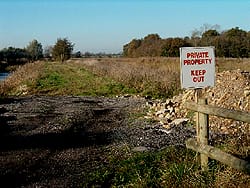
Respect the rights of others, including private property owners, all recreational trail users, campers and others so they can enjoy their recreational activities undisturbed.
Be considerate of others on the road or trail.
Learn the basics of trail etiquette.
Leave gates as you find them.
If crossing private property, be sure to ask permission from the landowner(s).
Yield the right of way to those passing you.
Keep speeds low around crowds and in camping areas. Keep the noise and dust down.
Be considerate of others on the road or trail.
Learn the basics of trail etiquette.
Leave gates as you find them.
If crossing private property, be sure to ask permission from the landowner(s).
Yield the right of way to those passing you.
Keep speeds low around crowds and in camping areas. Keep the noise and dust down.
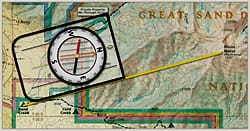
Educate yourself prior to your trip by obtaining travel maps and regulations from public agencies, planning for your trip, taking recreation skills classes and knowing how to operate your equipment safely.
Obtain a map, (motor vehicle use map where appropriate) of your destination and determine which areas are open to off-highway vehicles.
Make a realistic plan and stick to it.
Always tell someone of your travel plans
Contact the land manager for area restrictions, closures and permit requirements.
Check the weather forecast before you go.
Prepare for the unexpected by packing necessary emergency items. Buckle up! Seat belts are mandatory.
Know your limitations.
Watch your time, your fuel and your energy.
Take an off-highway drivers course to learn more about negotiating terrain in a four-wheel drive vehicle.
Make sure your vehicle is mechanically up to task.
Be prepared with tools, supplies, spares and a spill kit for trailside repairs.
Obtain a map, (motor vehicle use map where appropriate) of your destination and determine which areas are open to off-highway vehicles.
Make a realistic plan and stick to it.
Always tell someone of your travel plans
Contact the land manager for area restrictions, closures and permit requirements.
Check the weather forecast before you go.
Prepare for the unexpected by packing necessary emergency items. Buckle up! Seat belts are mandatory.
Know your limitations.
Watch your time, your fuel and your energy.
Take an off-highway drivers course to learn more about negotiating terrain in a four-wheel drive vehicle.
Make sure your vehicle is mechanically up to task.
Be prepared with tools, supplies, spares and a spill kit for trailside repairs.
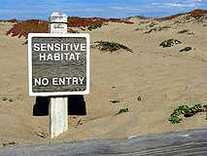
Avoid sensitive areas such as meadows, lake shores, wetlands and streams.
Stay on designated routes.
Other sensitive habitats to avoid include living desert soils, tundra, and seasonal nesting or breeding areas.
Do not disturb historical, archeological or paleontological sites.
Avoid “spooking” livestock and wildlife you encounter and keep your distance.
Pack out what you pack in and carry a trash bag on your vehicle to pick up litter left by others.
Respected Access is Open Access.
Stay on designated routes.
Other sensitive habitats to avoid include living desert soils, tundra, and seasonal nesting or breeding areas.
Do not disturb historical, archeological or paleontological sites.
Avoid “spooking” livestock and wildlife you encounter and keep your distance.
Pack out what you pack in and carry a trash bag on your vehicle to pick up litter left by others.
Respected Access is Open Access.
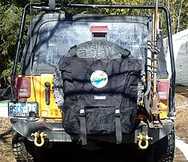
Do your part by modelling appropriate behaviour, leaving the area better than you found it, properly disposing of waste, minimizing the use of fire, avoiding the spread of invasive species and restoring degraded areas.
Carry a trash bag on your vehicle and pick up litter left by others.
Pack out what you pack in.
Practice minimum impact camping by using established sites, camping 200 feet from water resources and trails.
Observe proper sanitary waste disposal or pack your waste out. Protect the sound-scape by preventing unnecessary noise created by a poorly tuned vehicle or revving your engine.
Before and after a ride, wash your vehicle to reduce the spread of invasive species.
Build a trail community. Get to know other types of recreationists that share your favourite trail.
Carry a trash bag on your vehicle and pick up litter left by others.
Pack out what you pack in.
Practice minimum impact camping by using established sites, camping 200 feet from water resources and trails.
Observe proper sanitary waste disposal or pack your waste out. Protect the sound-scape by preventing unnecessary noise created by a poorly tuned vehicle or revving your engine.
Before and after a ride, wash your vehicle to reduce the spread of invasive species.
Build a trail community. Get to know other types of recreationists that share your favourite trail.
